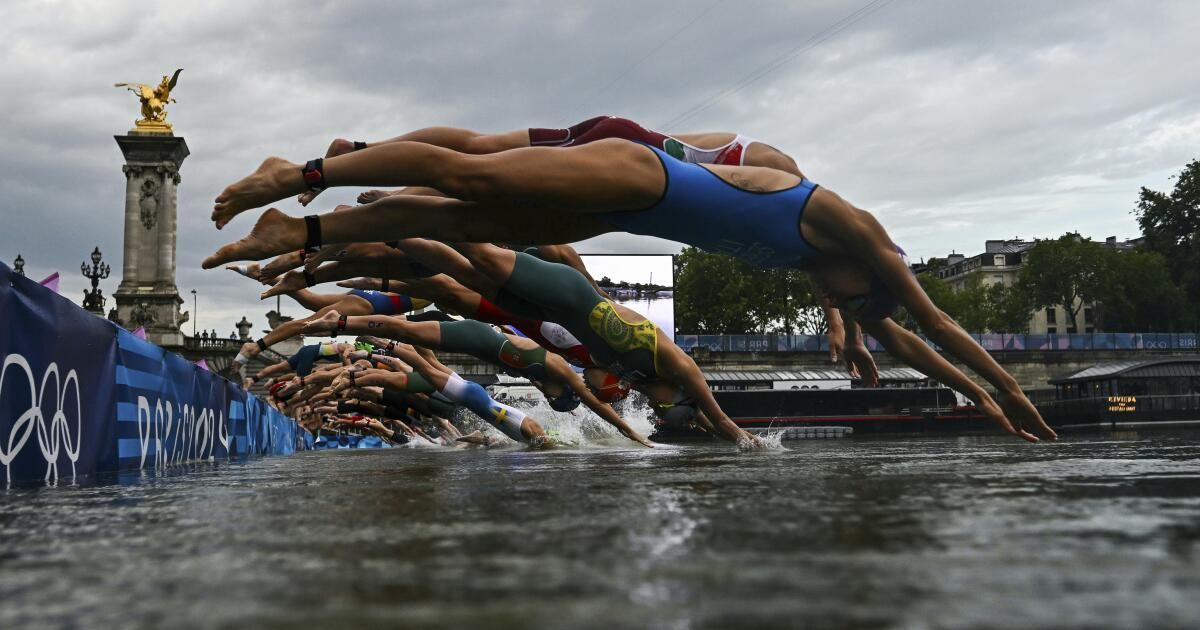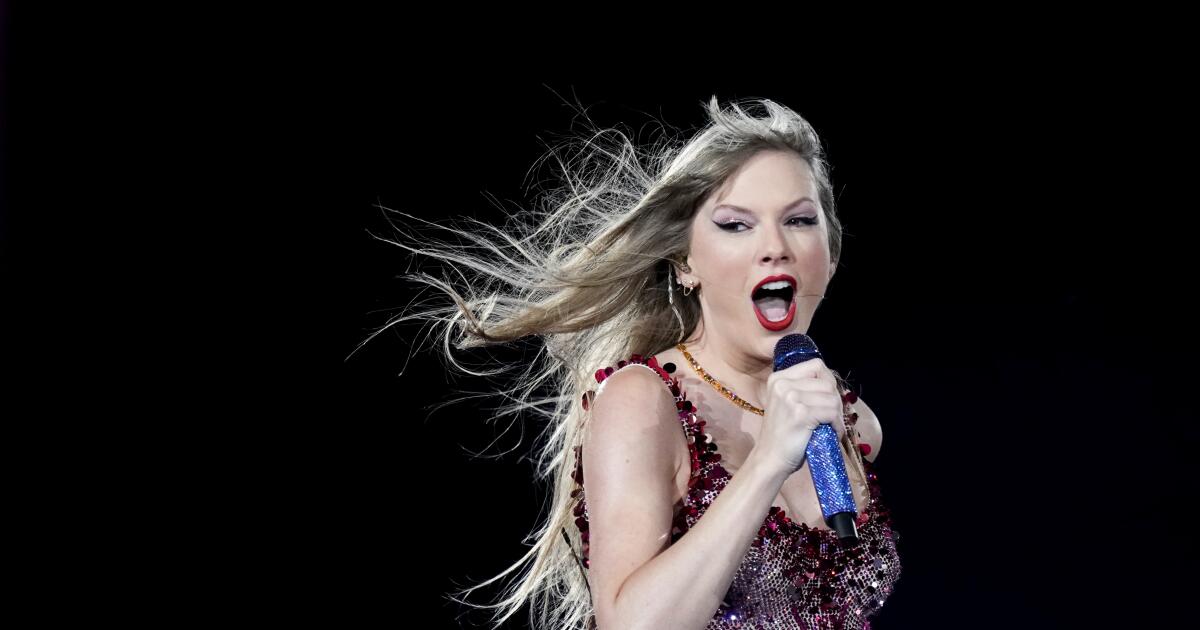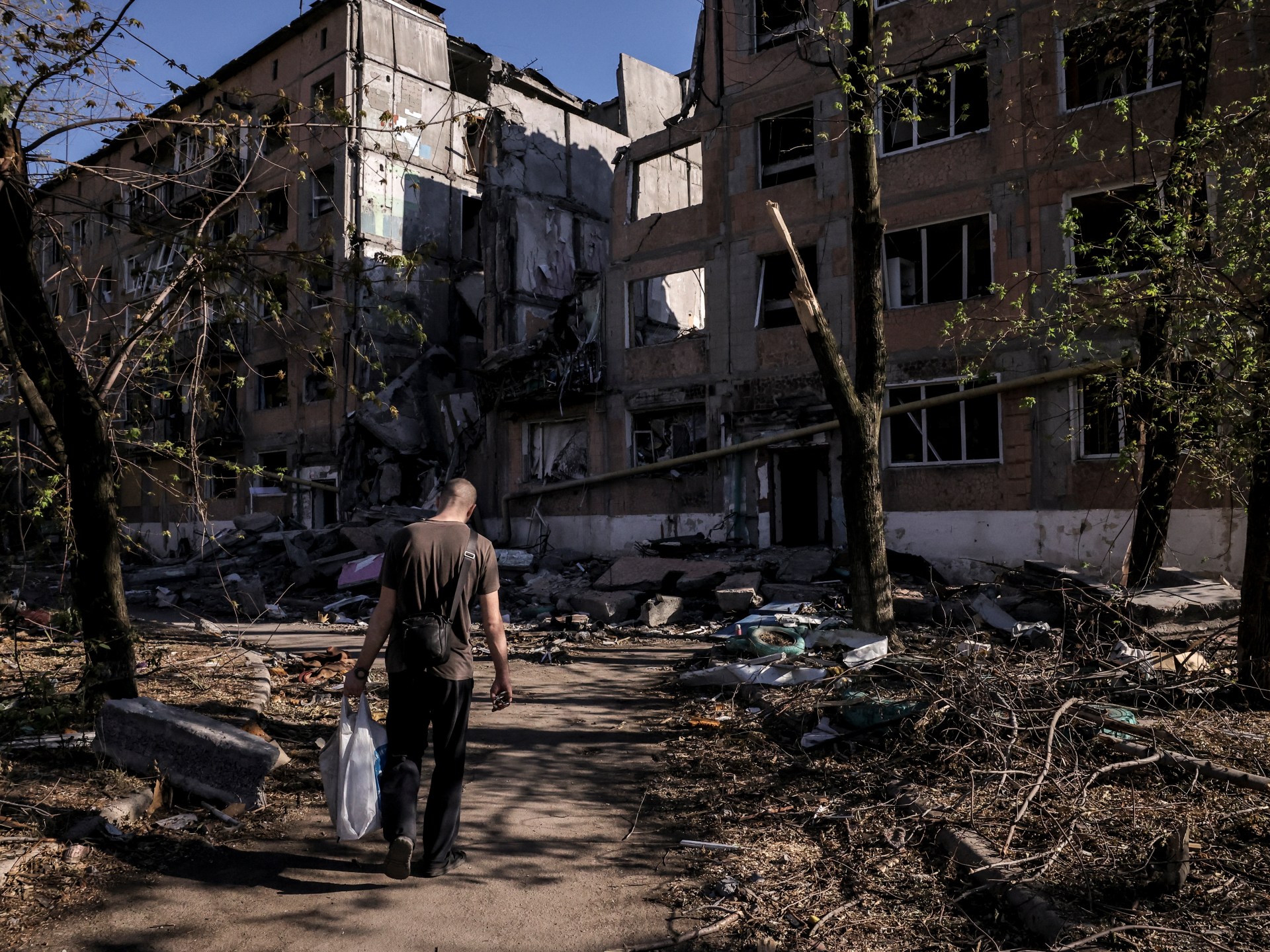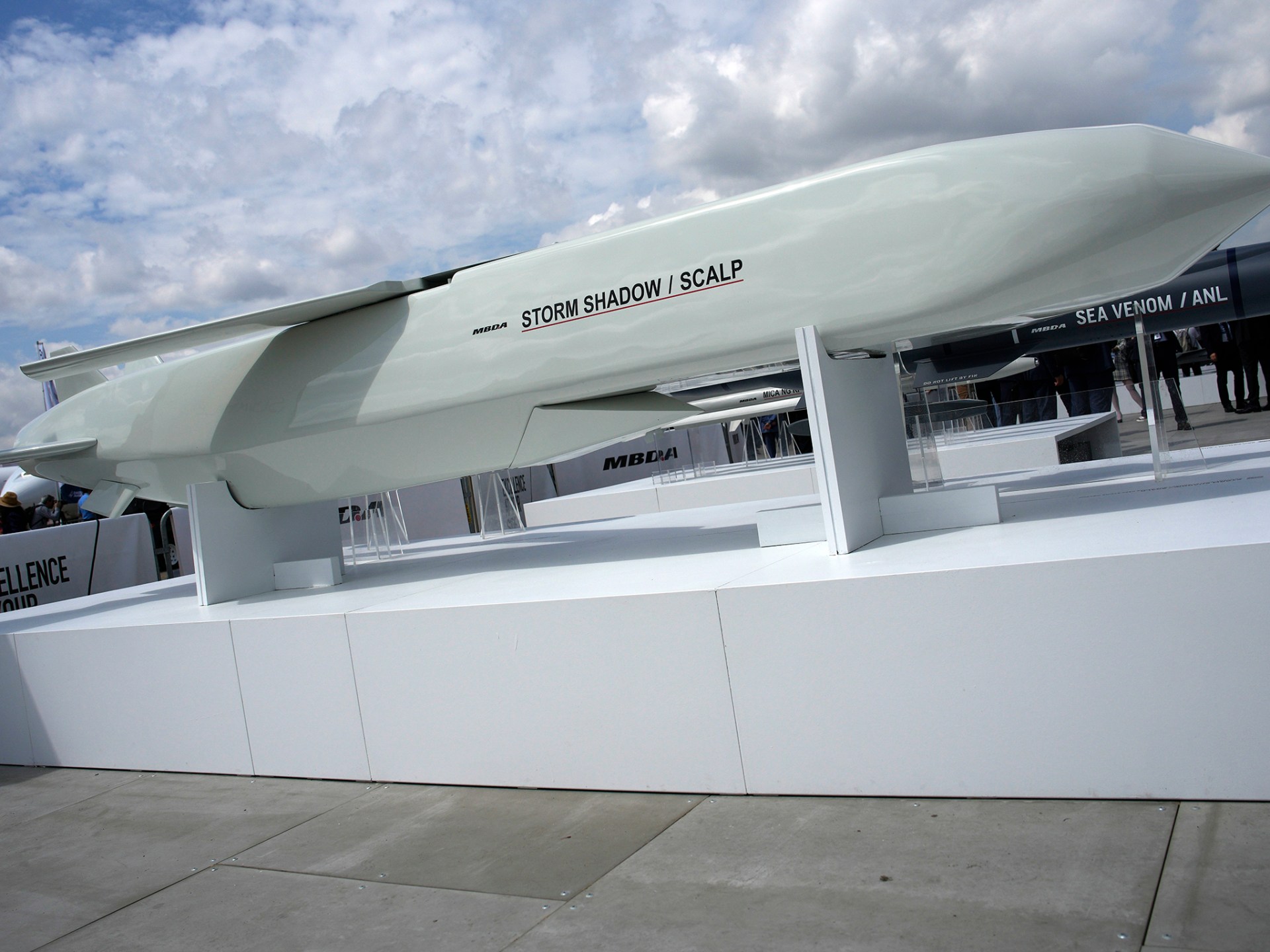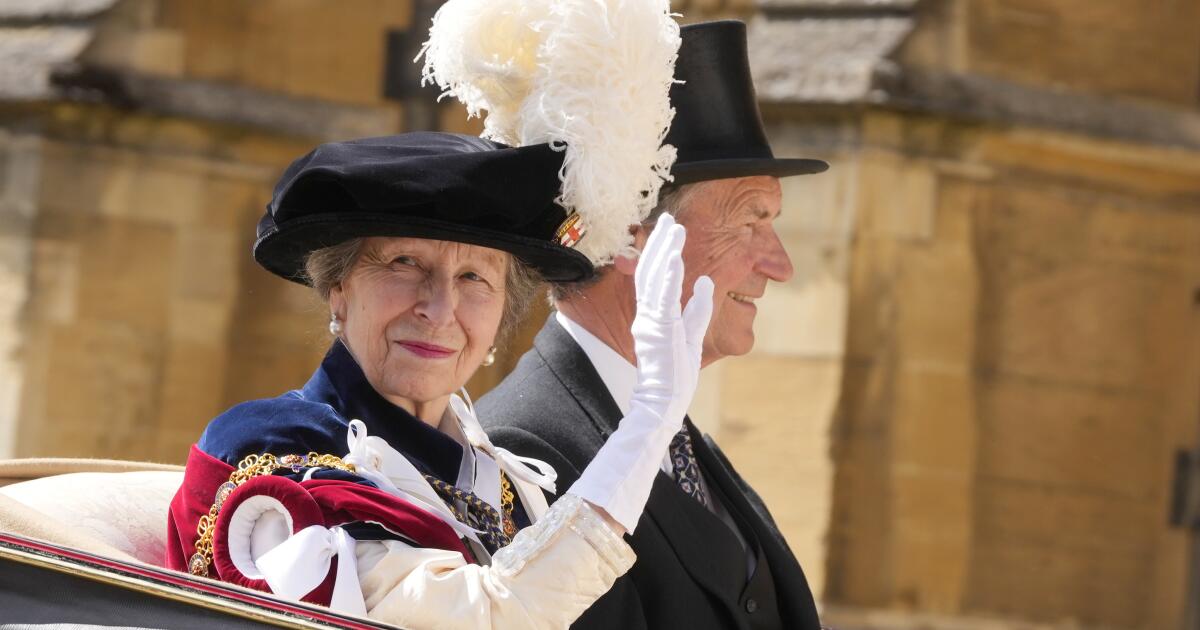People have been living on the banks of the Seine for over 3,000 years, and for much of that time they have been dumping rubbish, human excrement and whatever else they wished to dispose of into the river. It is even said that Joan of Arc's ashes were placed there after she was burned at the stake in 1431.
It should come as no surprise, then, that the river, which runs through the centre of Paris, is no longer in good condition. But concerns about water quality, which forced the men's triathlon to be postponed by a day, have disappeared and there is now a new worry ahead of Monday's mixed relay triathlon and the marathon swimming events on Thursday and Friday.
The currents.
Paris 2024 Summer Olympics
“I was scared several times because the current was dragging us along so much. It was not so easy to swim in the Seine,” said Frenchwoman Cassandre Beaugrand, winner of the women’s triathlon, about the currents, which were almost three times stronger than normal.
“The current was a lot stronger,” agreed New Zealander Hayden Wilde, silver medallist in the men’s race. “Technically, it was the hardest swim we’ve ever done. Obviously, you can see we were in there a few minutes longer, so it was really tough.”
In the triathlon, athletes swam just one mile in the river. Marathon swimmers will cover more than six times that distance, making both currents and bacteria levels in the water even more important factors.
Of course, the Olympics have been here before. Eight years ago in Rio de Janeiro, the open water swimming events were held in Copacabana, close to where a mutilated body had been found five weeks earlier. And that wasn't the only thing in the water. With tons of trash and untreated sewage from the city's poor neighborhoods flowing directly into the bay, the waters were found to be up to 1.7 million times more dangerous than a beach in the United States.
In Paris, the Seine has played an important role in the city's history and culture for centuries. Monet, Renoir, Seurat and other 19th-century Impressionists and Post-Impressionists painted scenes depicting life along the river, although bathing in it was banned a century ago and in the 1960s the river was declared biologically dead.
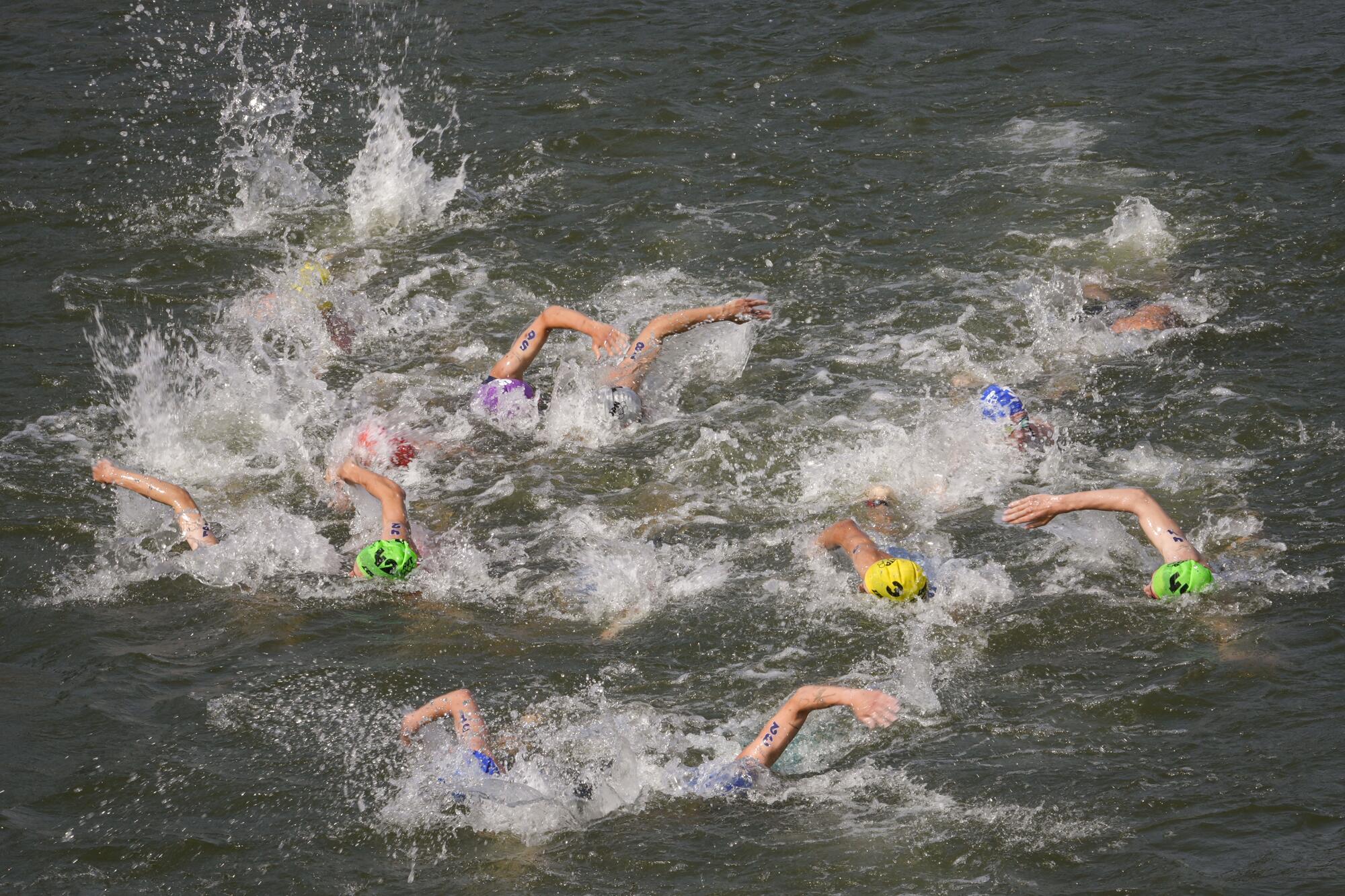
Athletes swim in the River Seine during the men's individual triathlon on Wednesday.
(Dar Yasin / Associated Press)
So after being awarded the Olympics in 2017, the Paris city government spent $1.5 billion upgrading aging stormwater and wastewater infrastructure in the hopes of making the river safe again. And to prove it worked, Anne Hidalgo, the city’s mayor, took a dip in the river nine days before the opening ceremony.
Then came the unusual summer rains that hit Paris and destroyed much of the work. As in many European cities, the French capital's sewer system collects both stormwater and wastewater and directs it to treatment plants. Heavy rain can overwhelm the system, and when the sewer pipes reach capacity, the wastewater has nowhere to go but into the river.
And it's not just the rain that's the problem on stormy days. The accompanying clouds block the sun, preventing it from killing harmful bacteria in the water.
After a day of delay and much wailing, the Seine was finally declared safe enough for triathlon and the men's and women's competitions began less than three hours apart, with the water quality and strong currents attracting much of the attention.
“The strong current on the way back made it more difficult,” said Swiss Julie Derron, silver medallist in the women’s triathlon. “But other than that, it’s just normal water.”
Great Britain's men's champion Alex Yee added: “I don't feel bad at all and I'm pretty confident we'll get a mixed relay. They've done everything they can.”
But for South African triathlete Henri Schoeman, who rowed through dirty water in Brazil to win a bronze medal in 2016, all the attention on the water in Paris was little more than an unwanted distraction.
“Everyone was talking about the river, not the athletes,” he told reporters. “It’s a shame that there has been a shadow over this whole river story. It is what it is. It’s part of the game and you have to adapt to it.”

